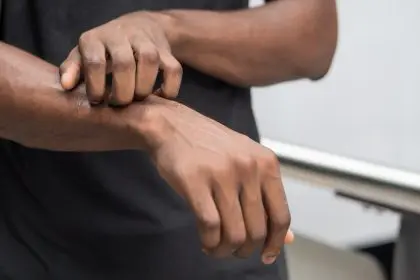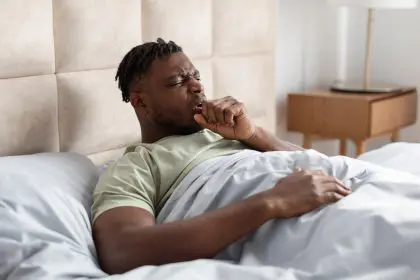Experiencing itching in private areas can be uncomfortable and concerning, yet it’s a common issue that many people face. Understanding the possible causes and when to seek medical attention is essential for relief and prevention. This article explores potential reasons for itching, practical remedies, and how to address underlying conditions.
Itching in intimate regions can arise for various reasons, ranging from mild irritation to more serious medical conditions. Identifying the root cause is the first step toward finding an effective solution.
Common causes and triggers
Poor hygiene habits
Inadequate hygiene can lead to the buildup of sweat, bacteria, and dead skin cells, causing itching. Wearing tight or non-breathable clothing can exacerbate the issue by trapping moisture and heat, creating an ideal environment for irritation.
Fungal or bacterial infections
Yeast infections and bacterial vaginosis are common culprits in women, while jock itch often affects men. These infections thrive in moist environments, leading to persistent itching and discomfort. Early identification and treatment can prevent these conditions from worsening.
Allergic reactions
Products like soaps, detergents, or even certain fabrics can cause allergic reactions in sensitive skin. These reactions often result in redness, swelling, and an intense itching sensation. Identifying and eliminating triggers is crucial for preventing recurrence.
Sexually transmitted infections
Certain STIs, such as herpes or trichomoniasis, may cause itching alongside other symptoms like discharge, sores, or pain. Early diagnosis and treatment are crucial for managing these conditions effectively.
When to seek medical attention
While occasional itching is normal, persistent or severe itching could indicate an underlying health issue. Watch for these warning signs:
Skin changes
If you notice rashes, sores, or discoloration, it may point to conditions like eczema, psoriasis, or even lichen sclerosus, which require medical attention. Document any changes to share with your healthcare provider.
Unusual discharge
Abnormal discharge in women, particularly if it has a strong odor or unusual color, may signal infections like yeast or bacterial vaginosis. For men, discharge accompanied by itching could also indicate an STI.
Pain or swelling
Itching combined with swelling, burning sensations, or pain may suggest an infection or an allergic reaction that needs prompt evaluation.
Practical relief measures
Addressing itching involves a combination of proper hygiene practices, appropriate treatments, and preventive measures. Here’s what you can do:
Maintain proper hygiene
Wash the affected area daily with mild, unscented soap and lukewarm water. Avoid scrubbing too hard, as this can worsen irritation. Pat the area dry thoroughly after washing.
Wear breathable fabrics
Opt for cotton underwear and avoid tight-fitting clothes that trap heat and moisture. Changing out of damp clothes, such as workout gear, promptly can also help prevent irritation.
Use gentle products
Switch to hypoallergenic soaps, detergents, and personal care items. Avoid douches or scented wipes, as these can disrupt the natural balance of bacteria and lead to further irritation.
Treatment options
Over-the-counter solutions
Anti-fungal creams, hydrocortisone ointments, or antihistamines may provide relief for mild cases. Always follow the instructions and consult a pharmacist if unsure about which product to use.
Prescription medications
Oral or topical treatments may be necessary for infections or chronic skin conditions. Antibiotics, antifungals, or antiviral drugs could be part of the treatment plan, depending on the underlying cause.
Specialized treatments
Chronic skin issues like eczema or lichen sclerosus often require ongoing management with prescribed creams or therapies. Your healthcare provider can develop a tailored treatment plan.
Prevention strategies
Daily habits
Stay hydrated and maintain a balanced diet rich in vitamins and minerals to support overall skin health. Practice good hygiene and wear appropriate clothing to prevent irritation.
Safe sex practices
Using protection and getting regular screenings can prevent STIs and reduce the chances of itching caused by infections. Regular communication with sexual partners about health concerns is important.
Regular check-ups
Schedule periodic visits to your healthcare provider to ensure any underlying issues are caught early and treated effectively. Don’t hesitate to discuss intimate health concerns during these visits.
Emotional impact and self-care
Itching in private areas can be more than just a physical discomfort—it can take a toll on emotional well-being. Feelings of embarrassment, frustration, or anxiety about the condition are common. Practicing self-care and maintaining open communication with your doctor can alleviate some of this stress. Remember, this is a manageable issue that many people face.
Moving forward
Itching in private areas is often manageable with proper care and attention to underlying causes. By understanding potential triggers and adopting preventive measures, you can alleviate discomfort and maintain optimal health. If symptoms persist, don’t hesitate to consult a healthcare professional for tailored solutions.
Taking these steps not only addresses the physical aspects but also fosters confidence and peace of mind. Remember that healthcare providers are trained to handle these concerns with professionalism and can offer effective solutions for your specific situation.
This story was created using AI technology.














